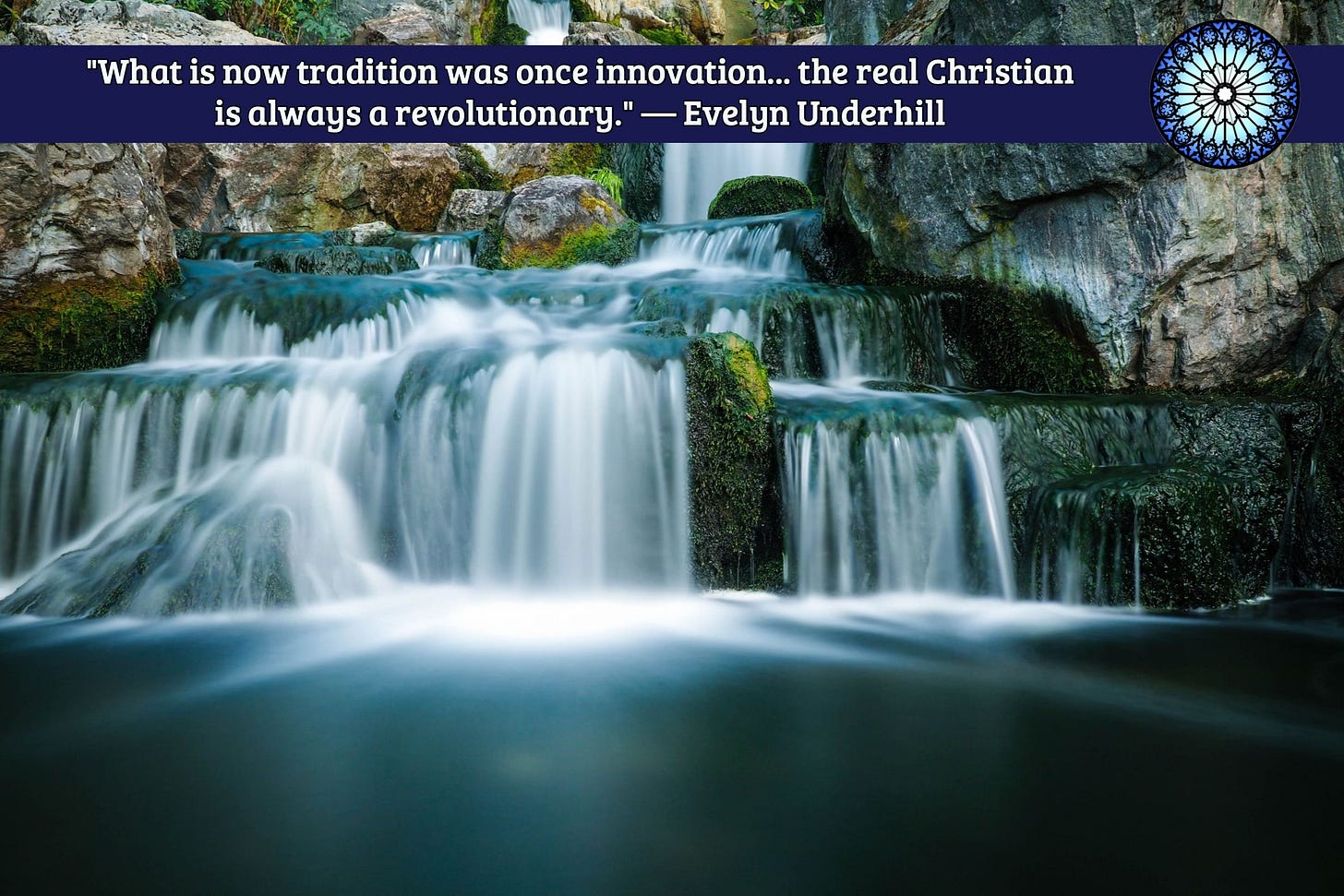Real, Revolutionary Spirituality
The Sacred Present Calls Us Into a Liberating Future
Those who cling to tradition and fear all novelty in God’s relation with His world, deny the creative activity of the Holy Spirit, and forget that what is now tradition was once innovation; that the real Christian is always a revolutionary, belongs to a new race and has been given a new name and a new song. God is with the future.
— Evelyn Underhill
Like…




